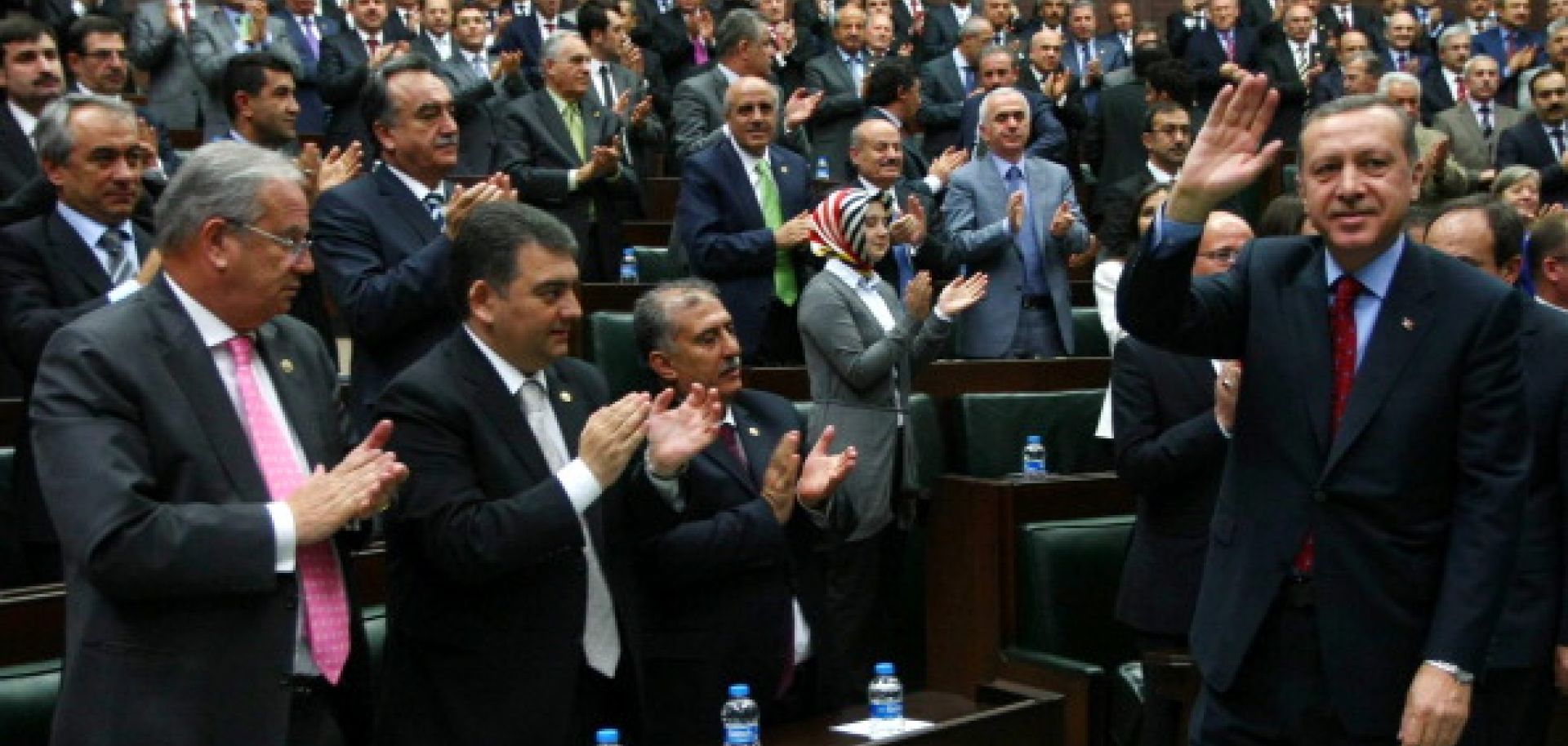ASSESSMENTS
Turkey: The Ruling Party's Transition Strategy
Jul 9, 2012 | 10:30 GMT

ADEM ALTAN/AFP/Getty Images
Summary
Three Kurdish militants were killed in clashes with security forces in southeast Turkey, Turkish security forces said July 8. The clashes come as the government works to improve dialogue and efforts at conciliation with Kurdish nationalist groups.
The clashes follow the Justice and Development Party's abolition of special courts that have been used to try alleged terrorists and coup plotters. The dismantling of these courts — which are despised by the Kurdish minority — was meant as a gesture of conciliation toward Kurds and the military. Established by the ruling party in 2005, the courts will still try the hundreds of cases involving Kurdish separatists and members of Turkey's military charged with plotting to overthrow Turkish Prime Minister Recep Tayyip Erdogan's government. But no new cases will be allowed and after closing current files, the courts will be permanently abolished. Their elimination is part of the ruling party's effort to reach out to Turkey's Kurds and opposition political parties and lay the groundwork for a national consensus.
The Justice and Development Party is facing a historical turning point, as is Turkey itself. The Islamist-rooted party is attempting to steward Turkey from a parliamentary political system to a presidential one as part of an effort to manage a leadership transition within the party. The party's ability to navigate this change will have broader repercussions, since Turkey's anticipated regional rise is predicated on economic growth and political stability at home.
Subscribe Now
SubscribeAlready have an account?
